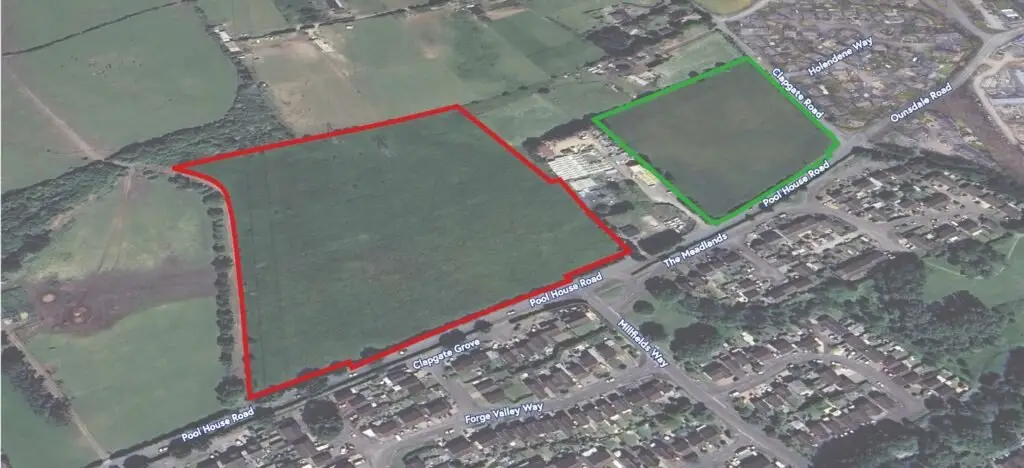WHAT IS PRE PLANNING APPLICATION ADVICE AND WHY IS IT IMPORTANT?
When it comes to navigating the complexities of development and construction projects, understanding the planning process is crucial. One term that often arises in discussions is pre-application advice, often called ‘pre-apps’. But what exactly does this mean, and why is it important? In this article, we will explore what is a pre-app, its significance, and how it can benefit developers, homeowners, and anyone involved in planning proposals.

Understanding Pre-Application Advice
Simply put, a pre-application refers to the stage in the planning process where an individual or organisation seeks advice and feedback from the local planning authority before submitting a formal planning application. Most Local Planning Authorities will offer a ‘pre-app service’. This initial step is informal and non-binding, providing an opportunity to discuss proposals, highlight potential issues, and gain insight into the likelihood of the project’s success.
This early dialogue can include discussions around design, environmental considerations, planning policies, and technical requirements. The aim is to ensure that when a formal planning application is submitted, it is more likely to meet the criteria set by a council, ensure the planners get all the information they need and reduce the chances of delays or refusals.
Why is Pre-Application Advice Important?
The pre-application phase plays a vital role in the overall planning journey for several reasons:
- Early Identification of Potential Issues
One of the greatest advantages of the pre-planning application process is that it allows the person who wishes to submit a planning application to identify any potential obstacles early on. Local planning authorities can flag possible issues which will need to explored through the planning application. For example issues related to the principle of development, conservation areas, heritage protection, or infrastructure limitations. Knowing these in advance helps applicants to adapt their proposals or consider alternative approaches before they formally submit an application.
- Saving Time and Money
Submitting a planning application without prior consultation can lead to refusals or requests for amendments, ultimately delaying the project. Engaging in a pre-application process reduces this risk by providing guidance on what information will need to be submitted and how proposals can be improved before formal submission so that they have the best chance of being approved. This proactive approach can result in a smoother process, saving both time and money.
- Improved Relationship with the Planning Authority
Starting conversations at the pre-application stage fosters a collaborative relationship between applicants and the planning authority. This can be invaluable throughout the planning process, as it encourages transparency and trust. Dedicated officers will often be assigned to a project to guide applicants through policy requirements and best practice.
- Clarity on Planning Policies and Requirements
Planning policies can be complex and vary significantly between different local authorities. The pre-application stage offers applicants a chance to understand clearly which policies apply to their project and what specific information or documents are required. This clarity helps to prepare a comprehensive planning application that meets the Council’s requirements and provides their planners with all the information they require.
What Does the Pre-Application Process Usually Involve?
The specifics of the pre-application process can vary depending on the council and project scope but typically includes the following steps:
- Initial Enquiry: The applicant contacts the planning department to ask for pre-application advice.
- Submission of Preliminary Details: This could include site plans, sketches, or design proposals.
- Meeting or Correspondence: Discussions between the applicant and planning officers to review the proposal, concerns, and necessary adjustments.
- Advice Documentation: Some councils provide a formal written response summarising feedback, which can be used to refine the final application.
When Should You Consider a Pre-Planning Application?
Whether you’re a homeowner looking to extend your property or a developer contemplating a commercial site, considering a pre-planning application early can play an invaluable role. Some scenarios where this step is particularly beneficial include:
- Projects in areas where policies might restrict development, for example in conservation areas or the Green Belt.
- Proposals involving changes of land use or large-scale construction.
- Developments requiring environmental assessments or infrastructure changes.
- Where local community concerns may arise, and early engagement is essential.
Final Thoughts
Understanding the pre- application process can significantly enhance your chances of securing planning consent. By engaging with local planning authorities early, applicants gain valuable insights, identify potential barriers, and refine their proposals accordingly. This proactive approach not only improves communication and mutual understanding but also increases efficiency, reducing the likelihood of refusal or delays.
In today’s increasingly complex planning environment, pre-application consultation is a sensible first step for anyone serious about ensuring their development project runs smoothly from conception to completion. If you are considering submitting a planning application, investing time in the pre-application phase could be your key to success.
Engaging a planning consultant at this early stage can really help to ensure your chance of success so that any concerns are identified and resolved, and communication with the local council runs smoothly. Evolve can prepare and submit requests for pre-application advice to the local planning authority on your behalf. Our involvement ensures that you get the most out of this process, which will improve your prospects of getting planning permission. If you’d like to speak to one of the team about a pre-application enquiry, please contact us on 01889 504136 and we’d be happy to help.
